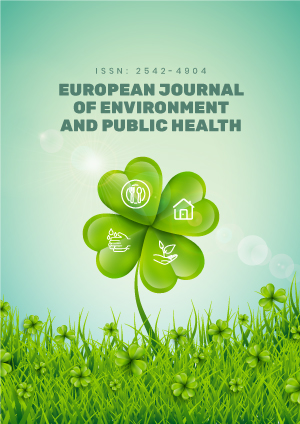This article is retracted. Retraction Note: https://doi.org/10.29333/ejeph/13394
Abstract
Salt is a noteworthy mineral component that plays a major role in health and infection. Unreasonable salt intake is a major reason for hypertension, cardiovascular illness, and stroke. It is assessed that 884 million individuals don’t have access to clean water in the world. The expanding saltiness of characteristic drinking water sources has been accounted for as one of the numerous issues that influence low-pay nations, however one which has not been completely investigated. This problem is exaggerated by rising sea levels, climate change as well as. The developed countries are used desalination trees for reducing the salinity level, in any case, this is probably not going to be a reasonable choice for low-salary nations influenced by high saltiness like Bangladesh. Miscarriage and preeclampsia are the most widely recognized pregnancy factor with various etiological elements, including inflammatory and autoimmune conditions. All the more as of late, various investigations demonstrated that unreasonable salt intake is engaged with the advancement of inflammatory procedures through the enlistment of the T helper-17 pathway and their inflammatory cytokines. Then again, miscarriage, preeclampsia, and adverse pregnancy outcome have been demonstrated in several studies indicated the pivotal role of inflammation in the etiology. Here, it is assumed that unreasonable salt intake during the time of pregnancy can highly be associated with increased risk of miscarriage, and adverse pregnancy outcome. Subsequently, the risk of miscarriage and adverse pregnancy status can be reduced by taking the low salt intake around the time of pregnancy status. This paper also describes the role of salt in the etiology of miscarriage and preeclampsia.
Keywords
License
This is an open access article distributed under the Creative Commons Attribution License which permits unrestricted use, distribution, and reproduction in any medium, provided the original work is properly cited.
Article Type: Research Article
EUR J ENV PUBLIC HLT, Volume 4, Issue 1, 2020, Article No: em0036
https://doi.org/10.29333/ejeph/6291
Publication date: 23 Nov 2019
Article Views: 3453
Article Downloads: 2285
Open Access References How to cite this article